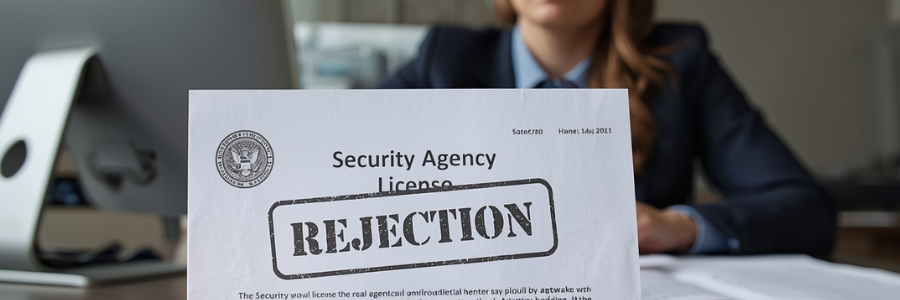State-Wise PSARA Registration: States and Document Requirements
Overview
To regulate the private security agencies under the specific legal frameworks, the Indian government established the PSARA Act, 2005. This act allows such companies to regulate their activities legally in India. The act demonstrates that any agency that provides the training for security guards to individuals must acquire a current PSARA license. In short, the PSARA registration is a legal prerequisite in India for private security agencies. However, navigating the complex registration process and the multiple document requirements can be daunting for new users. This is because the documents and processes vary from state to state. Let’s examine this in more detail in this guide to explore the process and documents checklist, state by state. Read more in the next section.
1. Importance of State-Wise PSARA License
A single PSARA license provides only one state authorization. It means to register a security company cannot use the same license in another state in India. In detail, the state-wise PSARA license is state-specific. A single certificate doesn’t authorize the operation across multiple states. Trying to operate without the mandatory certificate is marked as an illegal activity.
Well, there is a major reason why state-level control is crucial:
- Centralized Regulation: The PSARA Act mandates that all private security agencies be regulated at the state level. The act specified that each state government can create its own rules and regulations.
- Public Order Managed by State Government: The Indian Constitution gives the state government the power to oversee “public order” and “police.” It implies that the state government is in charge of managing the licensing and regulatory requirements.
- Differences in States’ Requirements: Due to having the state-level responsibility, each state sets its own rules and regulations.
For example, the police verification process might be mandatory for a state, while in another the training center inspection is required.
- Multi-State License: A single PSARA registration license does not apply to all states of India. Any agency that seeks to operate in each state must grant a license to multiple states’ controlling authorities. It helps the government to operate the security agencies within its territory.
2. Differences in local documentation and verification for the PSARA License
The central legal framework is regulated under the Private Security Agencies Regulation Act (PSARA), 2005, which governs the main legal framework. Meanwhile, the process of documentation and verification varies from state to state. This can be interpreted as:
Difference in Documentation
Every state has a different documentation process. The identity proofs, addresses, company incorporation certificates, and MoU documentation are basic. But the state controlling authority often asks for additional paperwork.
For example, in Rajasthan, the controlling authority asks to provide the tie-up certificate, which is issued by the government-recognized institutes.
Similarly, if any individual applies for the PSARA license, they need an exact match digital signature and completely scanned documents. Often, they are required to provide additional documents such as GST, PF, ESIC, and a labor license.
Difference in Verification Procedure
In it, the police verification process is involved, which is state-wise:
- A deep police verification: For the police verification, a level of detail and forms are required. There are strict police verification processes in some Indian states, like Rajasthan.
- On-Site Inspection: In Maharashtra, the on-site inspection is conducted when the police visit the agency’s office.
- NOC from Local Authorities: For further confirmation, some local jurisdictions require NOCs (No Objection Certificates), which can be conveyed from the regional municipality.
3. What are the Benefits of Obtaining a PSARA License?
The private security agency gets various advantages when they are legally verified through the state-wise PSARA license process. These benefits include:
- The license gives you the legal right to drive a private guard corporation in a particular state.
- It confirms to clients, residential societies, and others that your agency is legitimate and operating within government-set frameworks.
- To be eligible for the bids and tenders, the various government and public sectors preferred the PSARA-certified agency.
- To enter into an enforceable contract, the individual or agency is required to have a valid license. It grants legal recognition in competitive areas.
Don’t Miss This Related Guide: Why Every Security Agency Needs a Valid PSARA Registration?
4. State-Wise PSARA Registration Process
Here is the complete list of states with their controlling authority and the processing timeline:
State |
Controlling Authority |
Processing Timeline |
Special Requirements |
|
Delhi |
Joint CP (Licensing) |
30–45 days |
Local police NOC mandatory |
|
Maharashtra |
Home Department |
45–60 days |
Training center approval |
|
Karnataka |
State Police Dept. |
30 days |
Background verification |
|
Tamil Nadu |
Commissioner of Police |
45 days |
Local business registration |
|
Gujarat |
Home Department |
60 days |
State-specific security training norms |
|
Punjab |
Home Ministry (or Home Department) In some cases, the process comes under the Director General of Police (DGP) office |
60 to 90 days |
A physical office is mandatory with clean criminal records |
|
Uttarakhand |
State Home Department |
Approx. 60 days |
Physical office and approved training institute, and Memorandum of Understanding (MoU) |
|
Chhattisgarh |
Police Headquarters, Raipur, Sector 19 |
60 days |
The District Superintendent of Police must issue an NOC for a 10th pass or its equivalent. |
|
Bihar |
Special Secretary, Home Department (Special Branch) |
60 to 120 days |
Must have sufficient financial resources and a supervisor to monitor the work of guards |
|
Uttar Pradesh |
Additional Director General (ADG) of Laws & Order (L&O) |
60 to 90 days |
Local Office and MoU with the UP Government-Approved Training Institute |
The Checklist of PSARA License Documents
During the PSARA registration, the applicant is required to provide various documents. The major documents include:
- For the business registration proof, the Certificate of Incorporation/Partnership Deed
- If applicable, MOA & AOA (for companies)
- For the tax registration proof, the PAN card, and the GST certificate copy
- Applicant’s address proof of office premises
- Identity proof and photographs of directors/partners
- Training MOU copy
- Character certificate and Police verification report
Final Thoughts | State-wise PSARA License Process
The PSARA Act 2005 requirements demonstrate that PSARA security agencies must comply with regulations without legal obligations. It not only offers legal acknowledgment but also fosters client confidence and guarantees professionalism along with the standardization of operations. In addition, staying updated with the state-specific guidelines helps to comply with new notifications and make changes to business operations. To facilitate a smoother and more seamless PSARA registration process in India, it is advisable to consult a professional. At LegalRaasta, you will receive essential support and guidance throughout the registration procedure.
Frequently Asked Questions
- The PSARA license is issued by whom?
Ans. The relevant state government’s controlling authority issues the PSARA security license.
- How much is required to pay for the PSARA license certificate??
Ans. The registration cost is divided district-wise. For one district, the cost is Rs 5000; for up to five, the cost is Rs 10,000; and for the whole state, the cost is Rs 25,000.
- How can I get a license to be a security guard?
Ans. To obtain the license, the applicant is first required to establish a security agency in the respective state. The next step is to register for the Private Security Agency Regulation Act license.
- Which four categories of security training exist?
Ans. Basic security awareness training, technical security training, security management training, and compliance training are the four main categories of security training.
- How long does it take to renew a PSARA license?
Ans. The license holder is required to apply for the renewal at least 45 days before its expiry. But it will be more suitable if you start applying for the renewal at least 90 days before.










